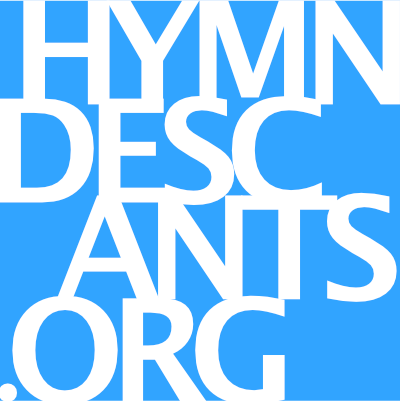Audio sample: hymnal verse - hymnal verse a cappella - (bridge ad lib) - harmonized descant. Free score.
1 unison
When I survey the wondrous cross
On which the prince of glory died,
My richest gain I count but Loss,
And pour contempt on all my Pride.
2. satb (harm. Samuel Webbe 1820)
See from his head, his hands, his feet,
Sorrow and love flow mingled down!
Did e'er such love and sorrow meet,
Or thorns compose so rich a crown?
3 descant
Were the whole realm of nature mine,
That were a off'ring far too small;
Love so amazing, so divine,
Demands my soul, my life, my all.
Isaac Watts, during his lifetime, helped usher the shift in hymnody from metrical Psalms to devotional hymns - in no small measure owing to the quality of his poetry. He wrote over 600 hymns, spread across seven volumes. Rachel Tillay observes that Watts "insisted that songs in the church should be fully evangelical and not just supplements to the Psalms; that hymns should be freely composed and not just hold to the letter of Scripture; and that hymns should give straightforward expression to the thoughts and feelings of the singers and not merely recall events of the distant past." Carl Daw notes the poet's use of oppositional word pairs such as gain/loss, contempt/pride; like Matthew Arnold several centuries prior, Daw considers that When I survey the wondrous cross (1707) may be the best of Watts' oeuvre. The hymn was permanently bound to ROCKINGHAM in Hymns Ancient & Modern (1861), though this pairing had already for many years been in common use.
ROCKINGHAM was published in The Psalms of David for the Use of Parish Churches in 1790 by its editor, Edward Miller, who was prominent as a Methodist composer; he added the inscription: "Part of the melody taken from a hymn tune," which he found in the Second Supplement to Psalmody in Miniature, c. 1780. The miniature scores, slightly larger than a modern business card, include the source, a tune named "TUNBRIDGE" (not the current tune of the same name) with the inscription – Miller's? – "Would make good long m." The new arrangement was written in figured bass, and named for the holder of a peerage in the north of England – as one may infer from the title of one of his works, The Tears of Yorkshire on the death of the Most Noble the Marquis of Rockingham.
Sources
- History of Hymns, UMC Discipleship Ministries: “When I Survey the Wondrous Cross”, Rachel Tillay
- The Hymnary: a comprehensive index of hymns and hymnals
- Glory to God: A Companion (Daw, Carl P. Jr., Westminster John Knox Press. ISBN 9780664503123)
- Internet Archive The Psalms of David for the Use of Parish Churches (ed., Edward Miller, 1790)
- "Church and Organ Music," The Musical Times Vol. 50, No. 795 (May 1, 1909), pp. 313-316 via JSTOR (paywall)
Descant verse:
Were the whole realm of nature mine,
that were an off'ring far too small;
love so amazing, so divine,
demands my soul, my life, my all.
– Isaac Watts, 1674 – 1748

